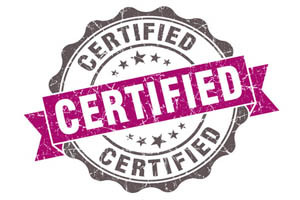
Sometimes the solution is to turn threats into opportunity. Image found @ Kari Joys
Many times when we decry that something needs to change, we sit around and complain but don’t do a single thing beyond that. However, when multiple people cry out for change, a movement begins. An example from the world of education shows that this can be seen when people put a personal chance in nature when they don’t vaccinate helpless children or when people simply choose a different path to the future. Either way, they both turn to homeschooling to state that they are not happy with the establishment as it stands.
But is the situation really due to just personal beliefs, or does it go deeper than that? Another look at the educational system implies that it may go a bit deeper than just a personal belief. It may be dissatisfaction in the system at large. The New York Times illustrated this with a piece on parents opting their kids out of the “Common Core” testing procedures due to a combination of mistrust, dislike, and a step to protecting their kids from too many standardised exams.
The Common Core is touted as a way to have all schools set challenging learning goals to better prepare students for college. They are designed with the intent to have all schools have the same set of standards for each grade level. For example, if you were learning multiplication in 3rd grade at one school, then moved to a different school, it should, ideally, have the same standards so you would be learning the same thing.
The problem, as the NY Times noted, these exams go beyond this noble goal. The tests are ways to judge the teachers and school systems as well, and with this judgement is a tie to money.
“There are generally few repercussions for students who do not take the tests, but if more than 5 percent of the student body at a given school or district opts out, that school may risk certain consequences, like greater monitoring or the loss of money for needy students.”
So, what’s a discerning parent to do? Voicing your opinion and debating at a parent teacher meeting will only take you so far when the schools across the nation are banning together with union-like heavy-handedness to prep these rules and standardise the education system. James Crisfield, a former superintendent of the school district in Millburn, N.J. pointed out that in a world of privilege, we lack one basic privilege that many parents crave: a right to how a child is educated at school.
“What you have is a right to a free public education, and here’s the package we have for you,” Crisfield said. “You can’t choose to have P.E. on Tuesday and every other Thursday. You can’t choose not to take the calculus test.”
And, he’s right. A public education is a packaged deal that, if you take advantage of it, will be paid mostly by public taxes to make it free very low cost or free for the students to attend And in exchange you will be given a policy crafted programme that you have very little say in. The loss of control is what people are not happy about in our privilege oriented society on the surface, but this loss of control goes further than high school, and people are starting to take note of that too.

Technibble says that IT certifications aren’t everything.
Once you’re an adult, you need to get a job. You’ve been told your entire life you can be and do anything you put your mind to. It’s a sweet sentiment that is absolute rubbish for the working poor and poor classes thanks in part to occupational licensing requirements. According to Brookings Institute, this is becoming more of a problem than we’d like to acknowledge.
How? First off, occupational licensing is unbalanced. For example, Brookings cites that Michigan requires 1,460 days of education and training to become an athletic trainer, but just 26 to be an emergency medical technician (EMT). In fact, across all states, interior designers, barbers, cosmetologists, and manicurists all face greater average licensing requirements than do EMTs. That seems a little shaky for someone who is supposed to beautify your skin, but not save your life. Why all the costly certification and classroom hours for something that is low risk to our health?
Anyone that has gone to school can attest to the impact that it has on all aspects of one’s life. Least of all is the cost. It’s not cheap, and it hangs over one’s head for the rest of their life — even if they can’t get a job in their promised field. These occupational licences, once used to ensure the buyer’s ease of mind, is erecting a barrier to entry into any occupation while also slowing job growth and limit employment opportunities. This goes on all while raising costs to consumers to cover the cost of this licensing.
I’m with Brooking’s final statement on this one:
Thoughtful reform of state occupational licensing practices should garner support from across the political spectrum. A call for evaluating the benefits and costs of widespread occupational licensing should appeal to those interested in expanding the employment prospects of low- and middle-income workers and keeping prices more affordable to low- and middle-income consumers. Simultaneously, the issue should draw interest from those committed to expanding economic opportunities by promoting entrepreneurship, the creation of small businesses, and giving individuals the ability to pursue their vocational interests.
Licensing has its purposes, but the price needs to be kept under control and the number of hours need to reflect the risk to our society at large. As we build Insanitek, this will be kept in mind so once people leave our company they are better equipped to wade through the world.
Who is with us?







